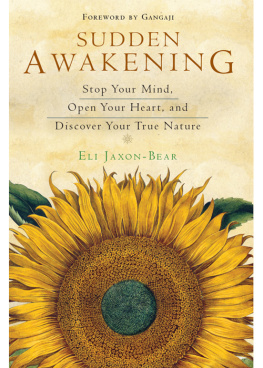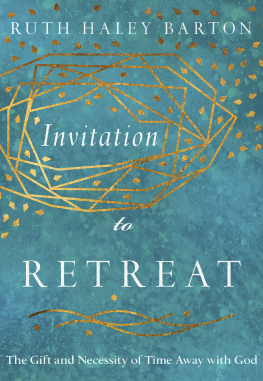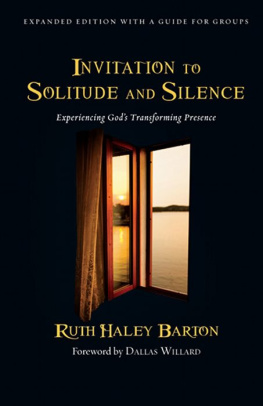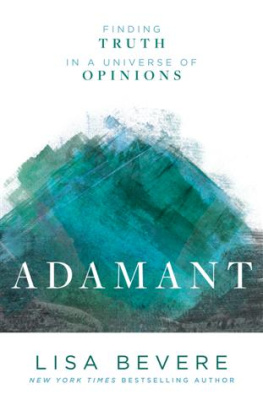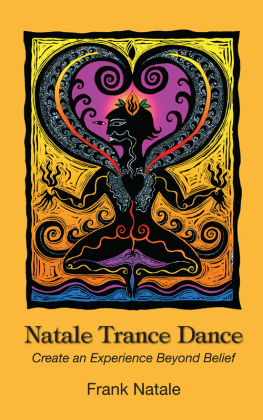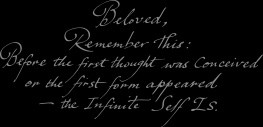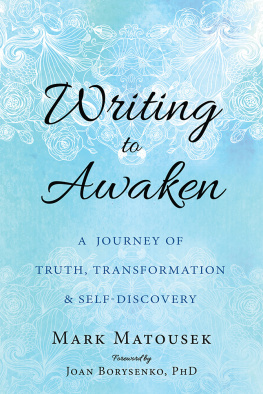
Copyright 2014
by Gangaji
All rights reserved. No part of this publication may be reproduced or transmitted in any form or by any means, electronic or mechanical, including photocopying, recording, or by any information storage and retrieval system, without permission in writing from Hampton Roads Publishing, Inc.
Reviewers may quote brief passages.
Cover photo of Gangaji by Dan Baumbach
Interior designed by Deborah Dutton
Hampton Roads Publishing Company, Inc.
Charlottesville, VA 22906
Distributed by Red Wheel/Weiser, LLC
www.redwheelweiser.com
Sign up for our newsletter and special offers by going to www.redwheelweiser.com/newsletter/.
ISBN: 978-1-57174-721-1
Library of Congress Cataloging-in-Publication Data available upon request.
Printed in the United States of America.
EBM
10 9 8 7 6 5 4 3 2 1
www.redwheelweiser.com
www.redwheelweiser.com/newsletter
Contents
Someone asked Papaji if he was still vigilant,
and he said, Until my last breath.
The Choice Is Yours
After aeons of choosing to tell a story of separation from God, the story seems choiceless. It seems choiceless, but it is not. You have simply been continuing to choose the story that was passed on to you by your ancestors, by your past lives, by your past mistakes, by your past desires. What is choiceless is the truth of who you are.
Choice lies in the mind's ability to either deny that truth or to embrace it. That choice is free willthe freedom of choice. You have no free will regarding who you are. You are that fully and completely. But you do have free will regarding the powers of mind and imagination. You can play as if you are not who you are. You can play as if you almost are, but still not quite. You can play any number of variations and permutations of choosing or denying who you are.
You have played like this for aeons. Eventually, a weariness arises in the play because the play is limited. For all of its display, for all of its beauty, for all of its pain, the play is limited because it is based on the assumption that you are somehow separate from truth, from understanding, from love, from God. The whole play is based on the assumption of separation, and the assumption hardly ever gets investigated. The assumption is believed to be real, and from this belief the play gets very complicated.
I am inviting you to see who is really playing.
Taking for granted the truth that you are consciousness, that you are one with God, that you are truth, then this taking for granted is a kind of trance or sleep state, where you will one day imagine that you are separate, that you are lost, and then the search begins again.
You are naturally consciousness. What we name God is supreme consciousness. You are naturally one with God. You are naturally truth. All the rest is unnatural. It may be normal, but it is not natural. It may be usual, but it is not natural. The play even has its purpose because with the belief in the play and the unnatural normality of it, there is an opportunity to imagine yourself as lost, to experience the pain and the suffering of being lost, of being cast out, of being separate from God. Then this imagination, this play with all of its pain, can give rise to the yearning for reunion of truth in all of its glory.
In the invitation that is extended from Ramana, the invitation of direct self-inquiry, you have the opportunity to turn your attention to who is lost, who is separate. You will find no one. There is no one lost. The lost one was fabricated in the mind to begin the play. If your resolve is to investigate intensely, freshly, completely, to not fall asleep by continuing to practice the belief based on the assumption of separation, then you will meet yourself as that very consciousness in which player, seeker, separation, and union appear and disappear.

Vigilance: A Call to Deeper Surrender
Many lucky, graced people have had a taste or a glimpse of what is immortal, of what is the eternal Self. From that taste the question arises, What next? or What should I do now? What do I do with this? Where do I take it? These questions indicate that more surrender is being called for. There is always an invitation to more deeply surrender. This surrender is vigilance.
Vigilance is often misunderstood. Usually, what passes for vigilance is careful monitoring by the super ego. I'm sure you're very aware of this kind of monitoring: Oh, I shouldn't have said it that way. I shouldn't have done it that way. I shouldn't have thought that. I should have surrendered. This monitoring is not vigilance. It is an imitation of vigilance. Vigilance comes from the word vigil, meaning to keep vigil. Keeping vigil is a form of worship. Vigilance is a sacred, quiet, peaceful vigil at the flame of truth.
By assuming that the perception of separation from truth is likely, or at least possible, you have the opportunity to keep vigil at the flame of truth. If you are truly vigilant, you will discover yourself as not separate from truth. What's next from that? Deeper vigilance. Deeper discovery. There is no end to true discovery. What can end is your preoccupation with who you thought you were. Your preoccupation with your body, your thoughts, and your emotions can finally end. In fact, the preoccupation continues only as you continue to feed it.
Feed your body. Feeding your body is not a big deal. But feeding your thoughts is a big deal. Feeding your emotions is a big deal. Stop feeding your thoughts and your emotions and see what doesn't need feeding for its existence. Keep vigil by that, surrender to that.
Keep the vigil as long as there is any possibility of a perception of someone separate from truth, as long as there is still a winding down of past desires, as long as there is any breath left in the body.
If the arrow of truth has pierced you and you know it, if you have had this experience, then you also know the arrogant thoughts that can arise: Well, I know I'm one with Truth, so who is there to keep vigil? You have probably said this, right? Then all of a sudden, there is suffering again with the wailing, I've lost it! How did this happen? The perception and experience of losing what cannot be lost are corrected by vigilance.
I am not speaking of effort. I am not speaking of doing vigilance. I am speaking of being vigilance and recognizing that it is natural to be that. You are pure awareness. Awareness is naturally vigilant. It is vigilant to itself, and it is always, in truth, aware of itself.
When the body is in deep sleep, and there are no reference points, no sense impressionsno perception of body or any object whether mental, emotional, or physicalstill there is awareness aware of itself, and this is bliss. This is the bliss of deep sleep. When the body awakens and objects come back into view, still you know that there has been deep, objectless experience. You don't have any sense impressions of it, but you know it because the awareness of itself is still present. As objects appear, our conditioning is to fixate on the objects and to overlook the deep nourishment that is always present. Vigilance is awareness of what does not disappear even when objects appear. Whether those objects are exquisite or horrible or mundane, always there is awareness aware of itself. Whether those objects are emotional or mental or physical, always there is awareness aware of itself.
Next page


